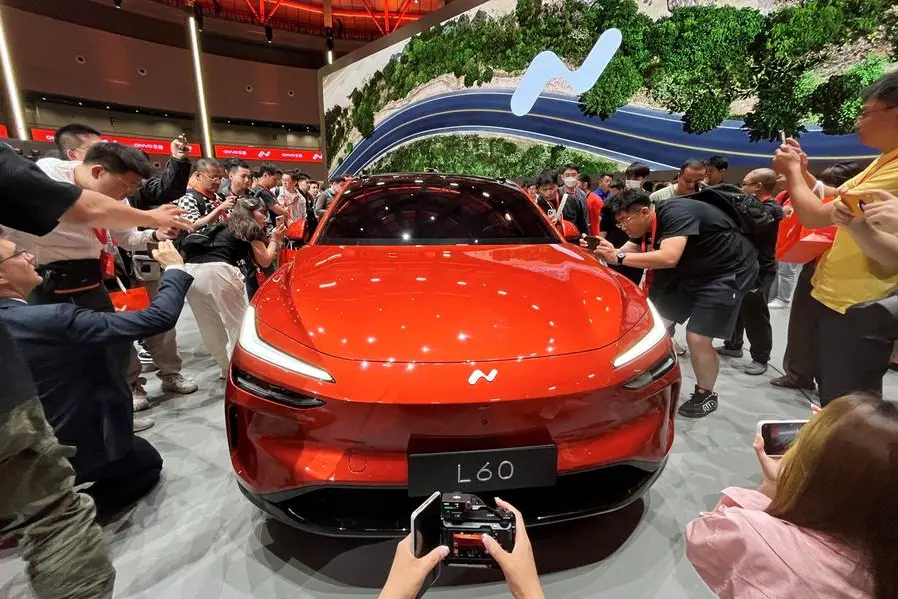PHOTO
Chinese electric vehicle maker Nio said on Thursday it would launch one new model per year under its lower-priced Onvo brand and price them similarly to gasoline vehicles, as the firm expands its lineups to family cars in the country's overcrowded auto market.
The announcement came a day after the company unveiled the Onvo L60 SUV with a sticker price starting from 219,900 yuan ($30,476), 12% below the price of Tesla's Model Y which starts at 249,900 yuan in China.
Nio said on Thursday it would have a second Onvo model targeting larger families coming up next and expected the newly launched brand to positively contribute to its overall profitability when monthly sales reach 20,000 units.
"China has 110 auto brands... and it's now already consolidated to 20-30 active players," Nio Chief Executive William Li said.
"The consolidation will continue but will not be very severe."
EV makers in China, the world's biggest auto market, are grappling with thin margins and slowing sales after more than a year of bruising price war amid weakening consumer demand. Many players are now shifting their focus to overseas markets.
Nio, which has a third affordable brand under development, is among the smaller players struggling to turn profitable. Its sales account for around 3% of China's overall EV market by volume and the company has been focusing on cost cuts to stay afloat.
The company said the Onvo L60 sacrificed acceleration speed that many EV models have focused on and instead prioritised safety and comfortableness to target buyers looking for family cars and to lower its price tag.
"People don't need family cars for racing... It is thus very important for them to save unnecessary costs in high-performance electric motors, which would also improve insurance and maintenance-related cost savings," said Alan Ai, president of Onvo.
REVENUE STREAM
Nio - which has spent heavily in EV infrastructure such as battery-swapping and charging stations, raising concerns over financial burden - said it would invest further, hoping to monetise it with increased user numbers.
Li expects the company's battery-swapping services to earn $10 billion annually when its user base grows by 100 times from half a million units currently.
"That's why we believed it (battery swapping) is worth our long-term investments," Li said, announcing a plan to add 1,000 more battery-swapping stations this year on top of the existing 2,415.
Nio has been in partnership with at least six Chinese EV makers since late last year to allow access to its battery-swapping stations.
They include Geely Holding Group, which owns eight car brands such as Zeekr and Volvo, as well as Guangzhou Automobile Group and Changan Automobile. (Reporting by Zhang Yan and Kevin Krolicki; Editing by Miyoung Kim and Subhranshu Sahu)





















